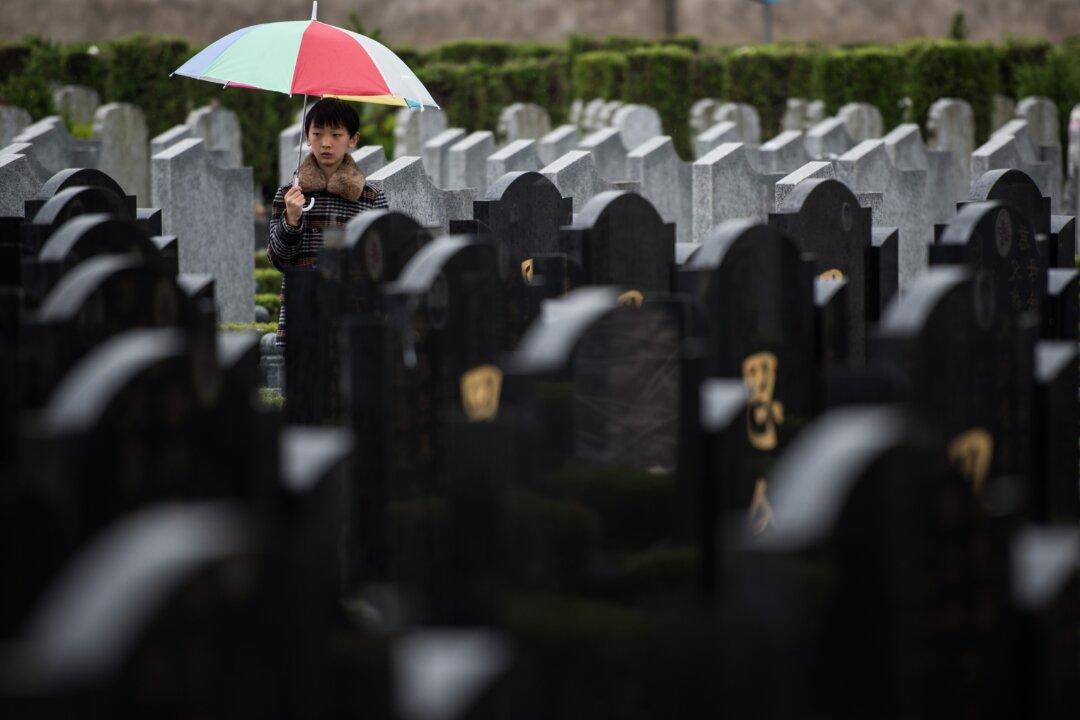For the Chinese, resting in peace can be pricier than remaining in the mortal realm. According to mainland Chinese reports, high graveyard rents in urban areas sometimes far outstrip those of housing in the same area.
In China, all land belongs to the state. A plot in the cemetery of about one square meter is rented for 20 years for a lump sum.
The Chang'an cemetery in Shanghai’s Jiading District charges between 50,000 yuan (about 8,000) and 80,000 yuan for that one square meter, depending on the quality of the gravesite. By comparison, a 70-year lease on a typical housing unit in the same district is between 10,000 and 20,000 yuan.
Fu Shenqi, an overseas democratic activist from China, told Epoch Times that “China has many social abnormalities. One is that average people cannot find a place to live. But for wealthy people, a graveyard can be turned into a luxurious construction. This is a sign of extreme social disparity and uneven distribution of wealth.”
In January, Ji Jianye, former mayor of Nanjing, purchased a 150-square meter cemetery plot with a price of 500,000 yuan (about $80,000) below the market value.




